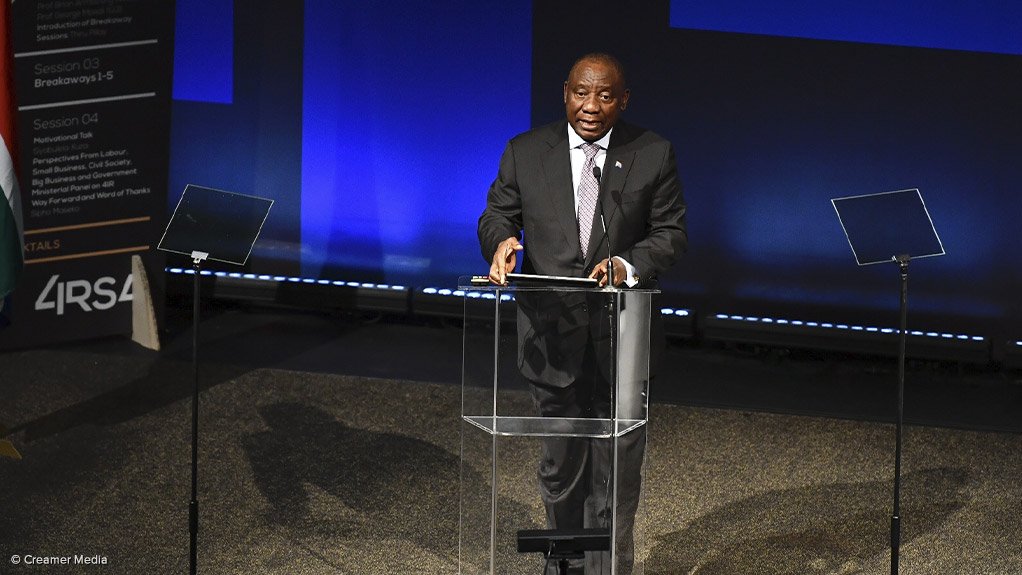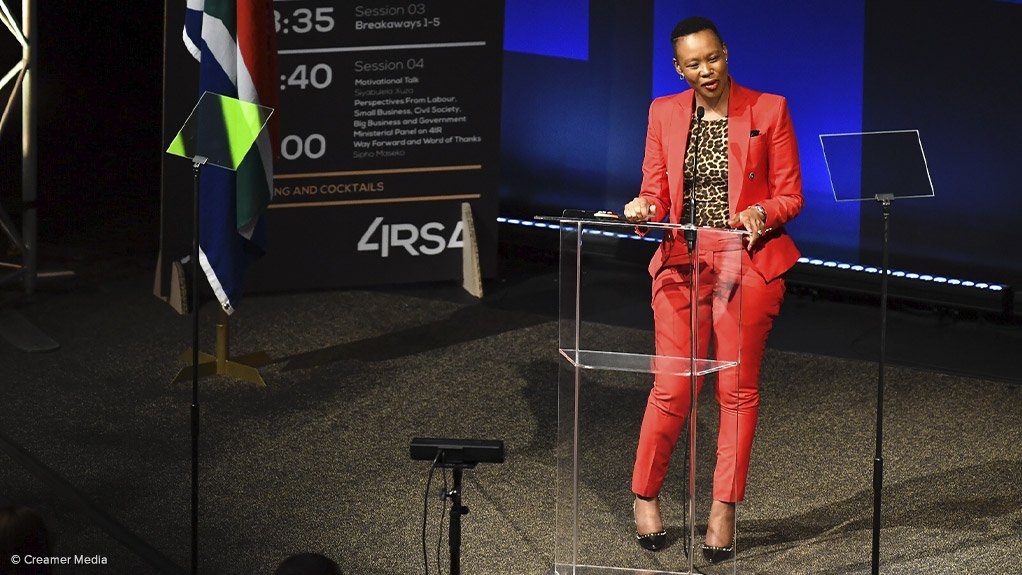South Africa is positioning itself not as an adopter but rather as a leader and driver of the Fourth Industrial Revolution (4IR) worldwide, President Cyril Ramaphosa promised on Friday, throwing his weight fully behind the imminent digital disruption.
He believes that taking the global lead on 4IR will drive the growth needed to unlock a better future for a country, and a continent, that had missed the first three industrial revolutions.
“We were late bloomers, [but] now we can be early adopters,” Ramaphosa told delegates at the inaugural Digital Economy Summit, in Midrand, noting that South Africa already has the lead and skills to realise this vision.
“We need to focus on the new technologies that are going to revolutionise our economy. We need to be ahead of the curve. This is doable.”
While there will be a disruption leading to the loss of many jobs, he believes that, as economies embrace the new revolution and the technology that accompanies it, many more will be created.
This will particularly enhance education and skills development and unlock an “entrepreneurial explosion”.
South Africa will no longer be slow on the uptake as focus narrows on the 4IR as the driver behind growth.
“There is R5-trillion [in economic value] waiting for us to grab,” he told delegates, referring to a recent study by Accenture on the value of digital transformation.
Industries such as agriculture, infrastructure, manufacturing and financial services, besides others, are expected to realise R1.4-trillion of this value by 2026.
Some R2-trillion of this overall economic value can be derived from government services, said Communications and Digital Technologies Minister Stella Ndabeni-Abrahams.
Another focal point is to integrate aspects of the 4IR into the seven priority sectors outlined by Ramaphosa in the State of the Nation Address (SoNA) earlier this year.
This includes leveraging 4IR to improve education and health; enabling a “skills revolution”; fostering economic transformation and job creation; consolidating the social wage through reliable and quality basic services; achieving spatial integration, developing human settlements and improving local government; encouraging social cohesion and safer communities; and developing a capable, ethical and developmental State.
“This is what I believe can help us advance our priorities to speed our transformation. We need to focus on the growth in the South Africa we want,” he said.
Following the technology-centred SoNA and promises of 4IR-focused attention, a 30-member Presidential Commission on 4IR was established in April to bring cohesion to the currently divergent discussions and deliberations.
The Presidential Commission, chaired by Ramaphosa, will assist government in taking advantage of the opportunities presented by the digital industrial revolution and identify relevant policies, strategies and action plans that will position South Africa as a competitive global player.
The summit held on Friday is a culmination of a partnership between the newly renamed Department of Communications and Digital Technologies (DCDT) and the 4IR South Africa (4IRSA), which is an alliance between Telkom, Deloitte and the universities of the Witwatersrand, Johannesburg and Fort Hare. The partnership has extended to include global technology giant Huawei and local mobile communications company Vodacom.
“We are beginning to imagine the South Africa we want and where we want to be,” Ramaphosa assured, highlighting that the foundation being laid was one that the commission could build on and from which a national dialogue on the country’s inclusive and shared digital future could develop.
Ndabeni-Abrahams said that, for the first time, South Africa had convened to develop a comprehensive strategy to navigate 4IR.
“For us to succeed in our task of 4IR [development], we need to synchronise all tasks related to 4IR. The industry is indeed responding.”
The outcomes of the summit will be used as the basis of a research report for the commission to develop a multisectoral framework and strategy for a coordinated response.
“Our role as government is that of an enabler, policymaker and regulator.”
The DCDT is also working on a directive for the allocation of the much-delayed, highly-anticipated high demand spectrum industry desperately requires to deploy the latest technology.
While no release dates were provided, Ramaphosa previously indicated that the department would release the spectrum policy within a month.
Meanwhile, the commission will receive inputs from a number of platforms to make it as inclusive as possible, leading the charge of 4IR.
“We are at the cutting edge of knowledge. Earlier this year, South Africa was ranked in the top ten of countries leading the digital change,” Ramaphosa said.
However, he committed government to a skills revolution to deliver the future human capital required and to the building of a “4IR army”.
Subjects such as coding and data analytics will be taught at the basic education level, while one-million youth will be trained in data science by 2030.
This is in addition to Gauteng’s Tshepo one-million programme and the sector education and training authorities' training of 1 000 youth in data science, drones, digital content and cloud computing, amongst others.
EMAIL THIS ARTICLE SAVE THIS ARTICLE ARTICLE ENQUIRY
To subscribe email subscriptions@creamermedia.co.za or click here
To advertise email advertising@creamermedia.co.za or click here













